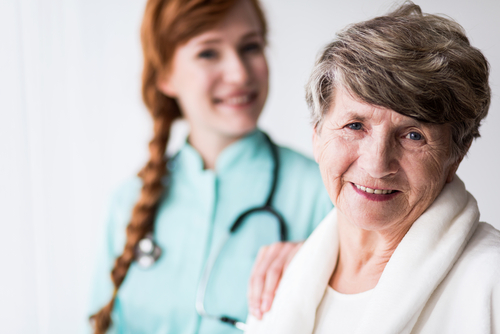Increasingly more seniors are looking to remain at home for as long as possible in lieu of going into a long-term care facility. This bodes well for the home health care industry.
According to a report by Deloitte, the traditional U.S. home health care market, valued at $77.8 billion in 2012, is projected to grow to $157 billion by 2022. In addition, according to the Bureau of Labor Statistics (BLS), job growth for home health and personal care aides is expected to increase by 70% over the coming decade. By 2022, the BLS says there will be 1.9 million home health care workers, making it the fastest-growing industry in the U.S. over the coming years.
Technology Supporting Home Health Care
Facilitating the move to aging in place is the advent of technology advances. This includes medical alert systems, which empower seniors to live independently, knowing they can get help in the event of a fall or other emergency. These devices also provide peace of mind for caregivers. Using their medical alert device, seniors can connect with trained professionals who can provide them with the appropriate assistance. Products can come equipped with automatic fall detection technology that sense a fall and activate a call for help when a senior may be unable to do so. The newest generation of medical alert services offers wireless options and location technology, allowing seniors to take their device outside the home with the added confidence that if they encounter an emergency, help will be able to locate them.
Those that don’t need a medical alert system can turn to mobile response apps on their smartphones and tablets. By activating the app, seniors can connect to 24/7 emergency call centers where trained professionals are waiting to assist them.
Telehealth is another area that supports the ability for seniors to stay and home. Telehealth technologies, including home monitoring, allow health care professionals to communicate, monitor and care for elderly patients remotely, and they help deliver integrated, high-quality care while seniors recover in the comfort of their homes. Along with monitoring a patient’s condition, the data telehealth solutions generate can help clinicians better predict when a patient may experience a medical event, ideally prompting a proactive intervention or adjustment to the care plan to prevent the need for a readmission.
Internet-enabled solutions such as email, social media, Skype and Face Time can help seniors stay active, engaged and feel less isolated. Seniors can easily stay in touch with family and caregivers using these platforms. In addition, they provide easy access to information about health, medical and lifestyle issues.
As the home health care market expands, Caitlin Morgan can provide you with the insurance solutions this industry requires to protect against its unique and varied risks. Give us a call at 877.226.1027 to find out more about our home health care insurance solutions.


